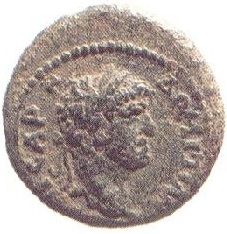 Reading the Bible is both easier than ever before, because of all the resources available, and more complex, because of all the resources available. One could argue that the oldest method of Bible reading is now back on the front burner, and the method can be called the “theological interpretation of Scripture.”
Reading the Bible is both easier than ever before, because of all the resources available, and more complex, because of all the resources available. One could argue that the oldest method of Bible reading is now back on the front burner, and the method can be called the “theological interpretation of Scripture.”
In the last few years I’ve read a number of books on this topic, and I can’t say that anyone is defining it clearly enough to gain a strong traction so that ordinary readers know exactly what is meant. Until that happens, theological interpretation will neither become common to the Church nor practicable even for pastors.
So, I’m particularly happy that J. Todd Billings has a new book and seeks to clarify some muddy waters by writing a book pitched for students and pastors. His book is called: The Word of God for the People of God: An Entryway to the Theological Interpretation of Scripture
.
.
Here’s his thumbnail definition, and it is still in need of clarification but I’ll quote it anyway: “a multifaceted practice of a community of faith in reading the Bible as God’s instrument of self-revelation and saving fellowship” (xii).
Do you think the goal of Bible reading is to discern the (human) author’s intent in its historical context? Do think we should read the Bible “through” our theology?
Billings will nuance this definition in a few ways, I want to illustrate my point, and then propose how I’m understanding what these folks are actually doing. Billings: it is the “practice of interpreting Scripture in the context of the triune activity of God, the God who uses Scripture to reshape the Church into Christ’s image by the Spirit’s power” (xiii).
All of this sounds nice, and I know these folks are pushing into new boundaries for many, but they tend to “abstract-ify” what they are doing so I’m going to propose a direct definition:
As I read these theological-interpretation folks, their real problem with current methods of interpretation is that they think Bible scholars are (1) too concerned with only the historical meaning of the text (sometimes called historicism or primitivism) and (2) too little concerned with the theological meaning of the text. But, though Billings is moving in one direction, I’m not convinced his definition actually excludes much historically-shaped critical approaches to the Bible.
So, I think Billings’ next lines get closer to what I’m seeing when I listen to this conversation: it’s about “examining the theology that we bring to Scripture and investigating how our theologies operate as we read Scripture in the midst of worshiping communities” (xii).
The theological interpretation of Scripture is to read individual passages in the Bible through the lens of one’s theology. This sounds too individualistic, so I want to reshape that slightly because I think it is the ideal of what these folks are proposing:
The theological interpretation of Scripture is to read individual passages in the Bible through the lens of one’s orthodox, community-shaped, and confessional theology. This approach is a desired approach. It’s the ancient approach.
As one who was nurtured into the more historical-critical approach, this approach could be said to (1) read into the Bible it’s own theology and (2) fall prey to the inability to challenge its theology on the basis of Scripture.
Yet, having said that from the angle of historical exegesis, the Church’s most ancient method is the theological method — that is, it read the Bible through the lens of the regula faith, the rule of faith. Luther spoke of “what drives Christ”. Furthermore, everyone reads the Bible through the lens of theology, even those who like to think they don’t. What the theological interpretation folks do is say this: yes, we do read the Bible influenced by theology, and, yes, we should. It’s the ancient-future interpretation.

